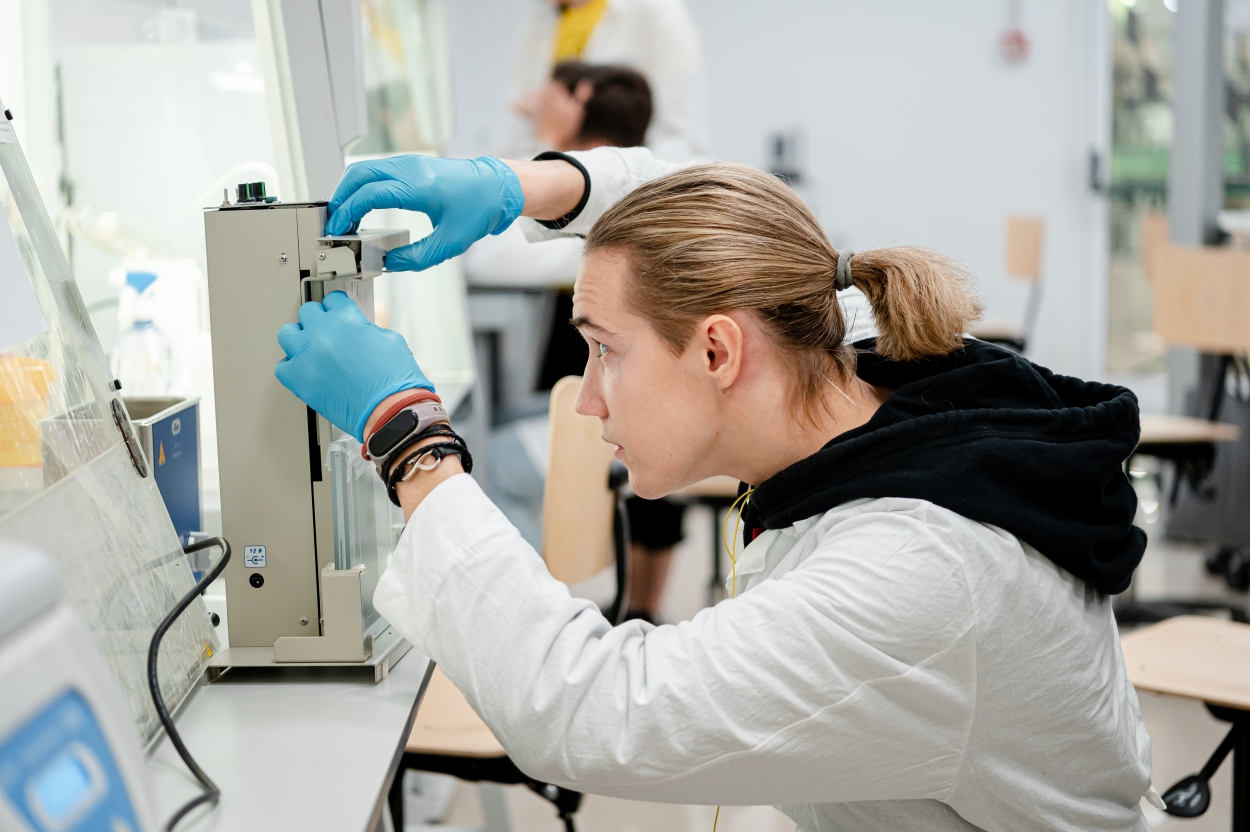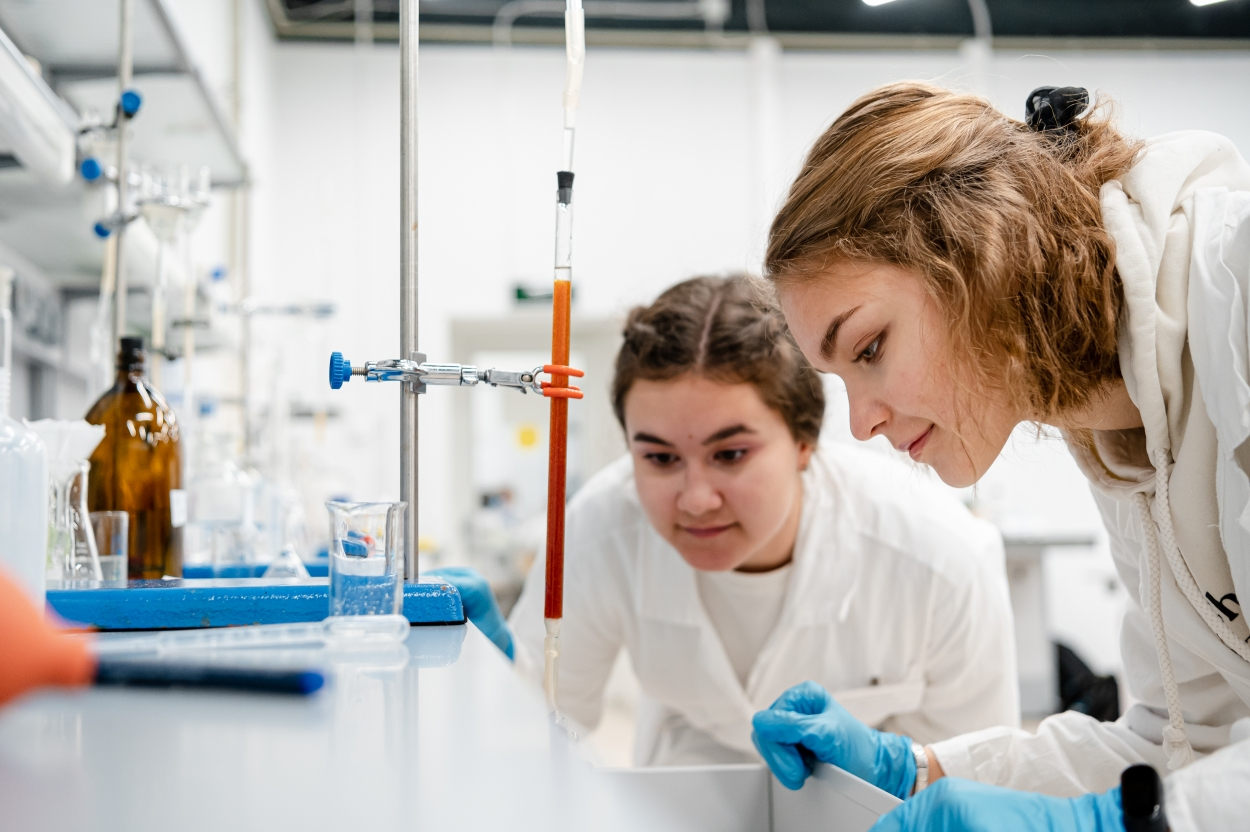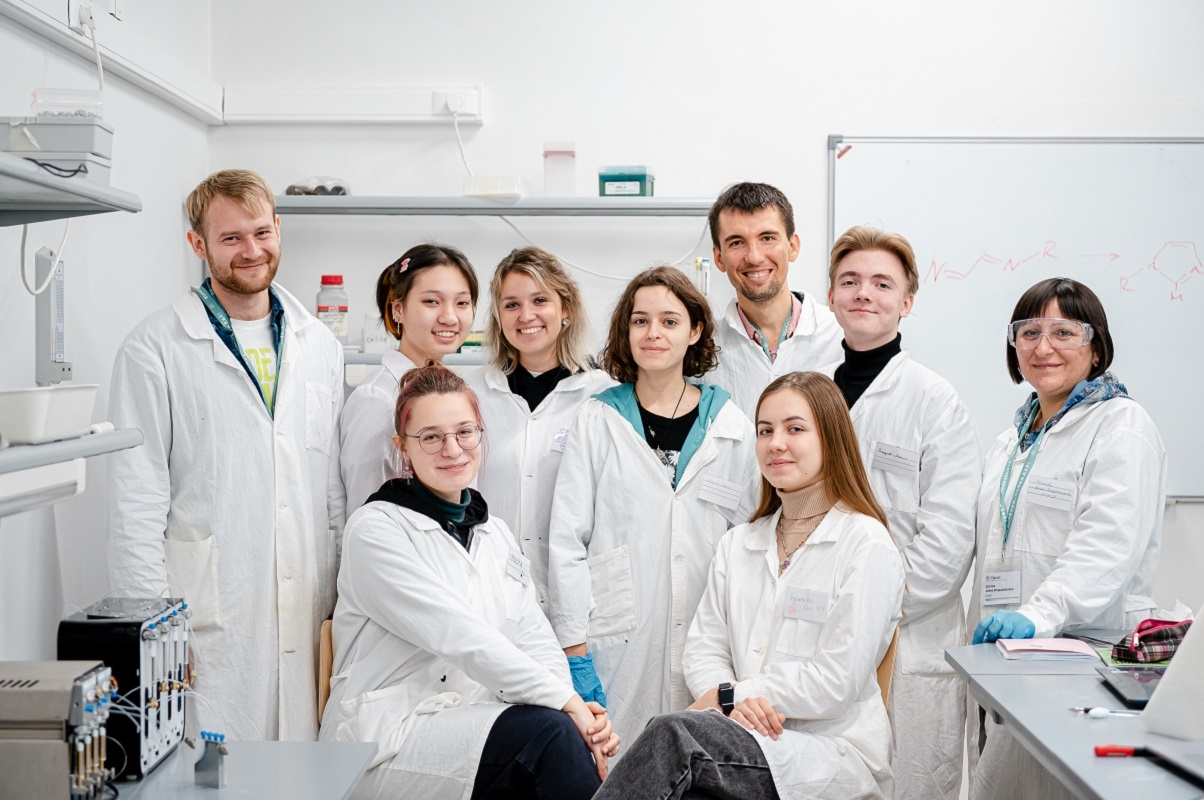From developing nanomaterials to studying the Earth's magnetic field: St Petersburg University’s chemical project session is over at Sirius
Synthesising dyes and drugs, producing new polymeric micellar catalysts and functional chips – these are just few of the topics for research works that were chosen by the participants of the fourth project session in chemistry at the Sirius Educational Centre . The session was organised by the Institute of Chemistry at St Petersburg University with support of volunteers among undergraduate and postgraduate students.
About 1,400 talented school pupils of 9-11 academic years who were winners and prize-takers of the All-Russian Olympiad for schoolchildren and other large-scale intellectual competitions applied for the programme. However, only 57 of them tool part in the chemical session at Sirius. Ten days before the session started, the Sirius website published brief presentations and outlines of the proposed projects to ensure that young chemists could make an informed decision while choosing the topic to work on. Eight topics for these projects were suggested by chemists and two of them by physicists,. On the final day of the session, a research and practice conference was held, where the participants presented their research results and findings.
This year, for the first time, the programme had an internship scheme for teachers who, like the young participants, passed a rigorous selection. Only six out of 300 people who submitted applications passed the competition successfully.
After all the projects had been presented, the first place was given to the project 'Modern synthetic methods in chemistry: the path from a flask to a chip’. It was headed by Vladimir Mikhailov, Associate Professor at St Petersburg University. The experimental study included the development of the architecture of a microfluidic device using modern computer-aided design systems. The project participants acquired skills to develop functional chips from glass and silicone materials based on a matrix of their own design made using additive technologies of photopolymer 3D printing. Additionally, school pupils had a brief outline of how modern organic chemistry can be applied in practice. They synthesised catalysts based on carbine complexes of copper and evaluated the catalytic ability of these compounds under the conditions of the reaction of azide-alkyne cycloaddition.
The second place was taken by: a team headed by Aleksandr Vanin, Associate Professor at the University ('From ions and molecules to magnetic nanoparticles and further to functional materials based on them'); and a team headed by Aleksandr Ievlev, Research Associate at the University ('Nuclear magnetic resonance in the Earth's field').
The participants of the first project gained a better understanding of the 'bottom-up' approach to how nanomaterials can be developed that is underpinned by the directed chemical synthesis of nanosized particles from ions and molecules and the subsequent preparation of colloidal systems. The pupils synthesised nanoparticles of magnetite Fe3O4 and ferrites MFe2O4 (manganese and cobalt), obtained magnetic fluids and a sorbent based on calcium alginate ('white caviar') in the form of balls 1.5–2 mm in diameter. Adding magnetite nanoparticles stabilised with citric acid into an aqueous solution of sodium alginate resulted in obtaining a magnetic sorbent (magnetic 'black caviar').
The school pupils who studied the basic methods of nuclear magnetic resonance, i.e. one of the most powerful tools for the non-destructive study of both the physicochemical properties of various substances and the study of the very structure of matter, conducted a series of experiments as part of the project on NMR in the Earth's field. The participants of the session learned how to: work with a nuclear resonance magnetometer and a spectrometer operating in weak magnetic fields; tune and control the operation of the experimental setup; find the NMR signal; achieve optimal operating modes; register NMR spectra in the Earth's magnetic field; calculate characteristics of substances; and receive maps of the Earth's magnetic field.
The third place was awarded to the project 'Polymer micellar catalysts in hydrolysis reactions' headed by Petr Fetin, Associate Professor at the University. It aimed to obtain novel polymer micellar catalysts using the copolymerisation of surface-active monomers with monomers of different hydrophobicity. Determination of the influence of the co-monomer fraction on the micellar-catalytic properties of the product. The participants obtained water-soluble and hydrogel structures (limitedly swellable in water) of AUTA-Br homo- and copolymers with monomers of various functionalities. To study the catalytic activity of the obtained compounds, they used a model reaction of alkaline hydrolysis of p-nitrophenylbutyrate.
While obtaining catalysts, the school pupils gained experience in applying modern spectral methods to study organic substances and kinetics of chemical reactions.
During the chemical session, the school pupils were engaged in research on the following topics: ‘Obtaining micro- and nanodispersed materials and their use'; 'Comparison of different methods of sample preparation in the determination of mobile forms of metals in soils'; and 'Chromatographic profile of antioxidants of medicinal and subtropical crops for the control of biotechnological approaches'. Many of the participants were keen to take part in the project 'Separation of ions of rare-earth elements by means of ion-exchange chromatography'. Yet the topic 'Organic synthesis in action: dyes, phosphors and drugs' stirred up the greatest interest among pupils: 32 out of 57 participants of the session applied for this project.




